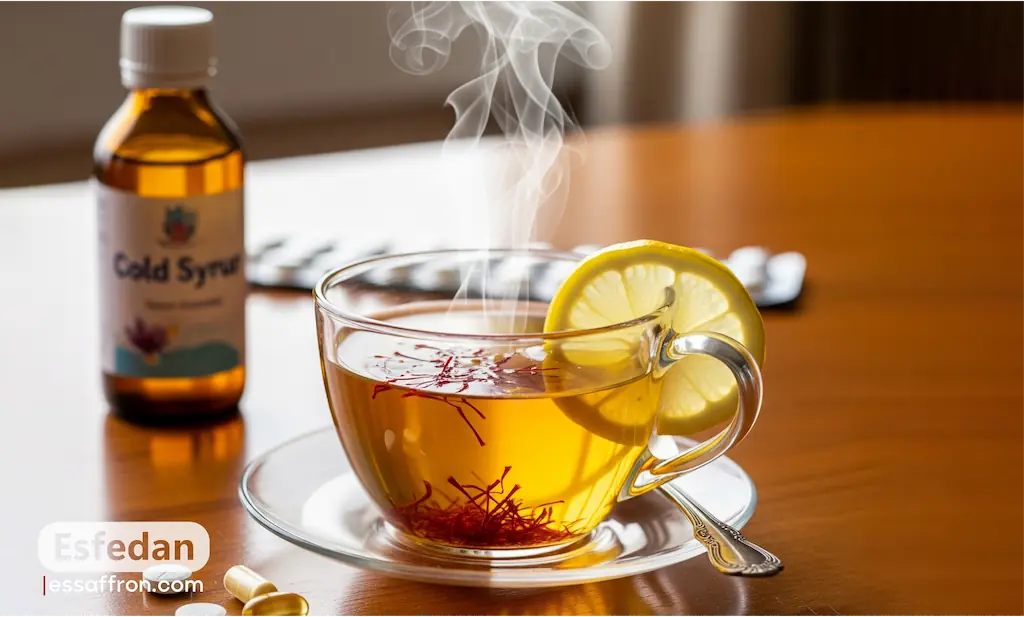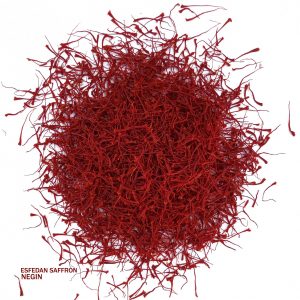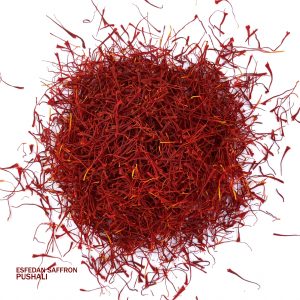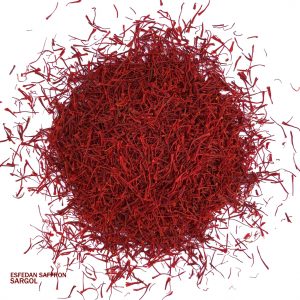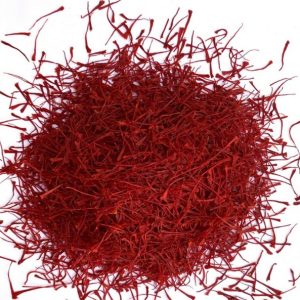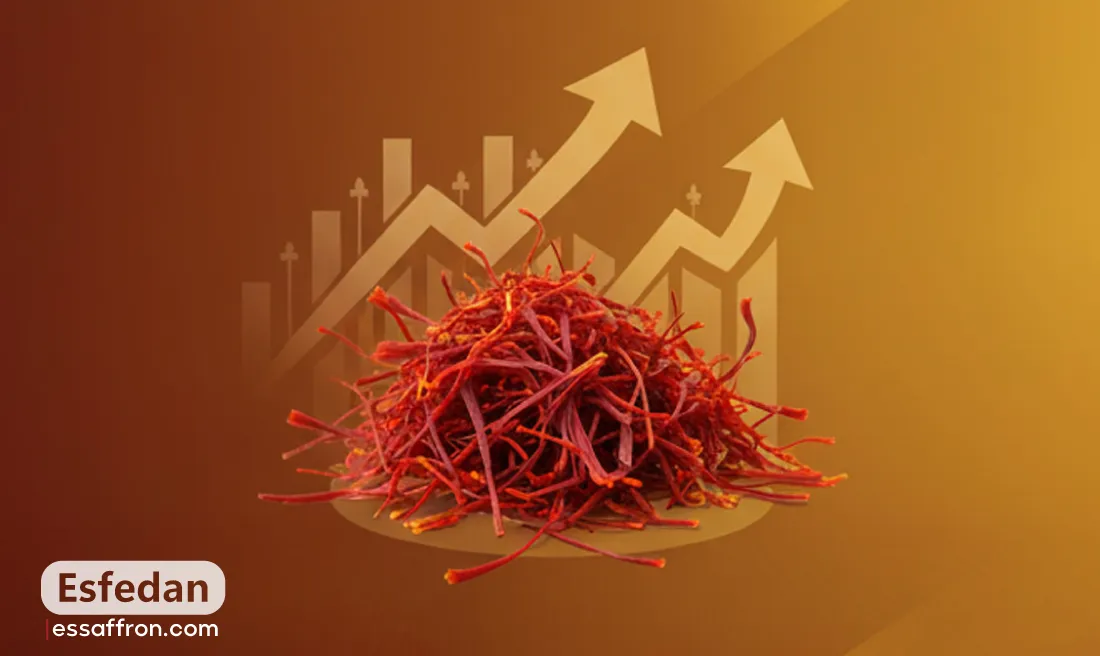Most people would search every single issue they encounter in their everyday life, or, as it is more common now, “Google it”. No matter if it is a simple question or a specialized one like what are the Benefits of Saffron for Health benefits It is probably the reason you are here reading this article as well.
However, most of the results, even those from reputable websites, may not be entirely accurate, especially in specialized and scientific subjects that are highly dependent on scientific research.
That is why we have provided a summary of scientific research about the benefits of saffron on human health. We have reviewed several articles and papers from ResearchGate, NCBI, HealthLine, and other websites to gather a reliable resource of information about saffron and its effects, ensuring you with the best and most valid information about saffron.
Pharmacological Benefits of Saffron
They have mentioned in the article’s abstract that saffron is the most valuable medicinal food product. The writers have attested that the stigma of the Crocus sativus or as it is most known as saffron Crocus, has an important role in pharmaceutics, cosmetics, perfumery, and textile dye-producing industries. Then the article goes on to give a thorough report on the pharmacological effects of saffron. Its growing effect in the pharmacological field is making saffron and saffron-based products even more important. They also count the phytochemical features of the plant and then mention the standard methods to evaluate the quality of saffron.
As stated in this article, saffron has been used in traditional medicine as “a sedative, expectorant, anti-asthma, emmenagogue, and adaptogenic agent”. However, the focus of the article is on the proven effects of saffron and here you can find a few saffron benefits which are examined in labs and have been proven.
| Area of Effect | Benefit & Research Findings |
| Depression | In mild to moderate cases, it has an equivalent effect to the drugs fluoxetine and imipramine and is more effective than a placebo. |
| Eye Health | Prevents retinal damage and helps in the treatment of ischemic retinopathy and age-related macular degeneration. |
| Cardiovascular Health | Causes a reduction in cholesterol and triglyceride levels and reduces vascular damage. |
| Vascular Health | Helps reduce hypoxia (oxygen deficiency) in the vascular wall. |
| Antioxidant Properties | Has a strong antioxidant effect and prevents lipid peroxidation in human platelets. |
| Memory & Learning | Improves damaged memory (e.g., by ethanol) and has a positive effect on learning behavior. |
| Skin Health | Plays a role in the management and improvement of psoriasis. |
Phytochemistry Features of Saffron
After talking about the benefits of saffron on human health, Gohari et al. explain the phytochemical aspects of saffron. Their research shows that the color of saffron is due to the degraded carotenoid compounds, crocin and crocetin. Its flavor also comes from the carotenoid oxidation products, mainly safranal. Finally, the bitter taste comes from glucoside picrocrocin for the biogenesis of the color and odor-active compounds.
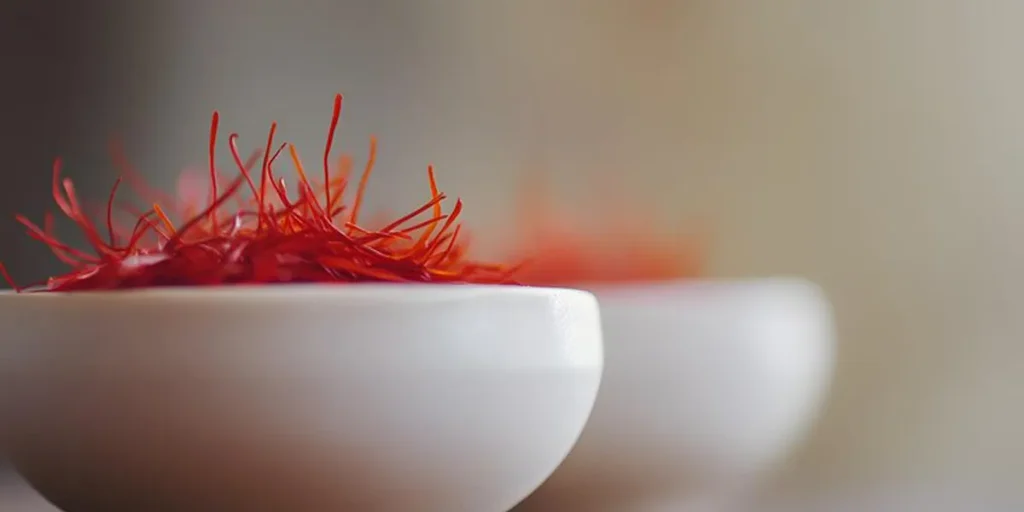
Based on the quality and part of the flower used, saffron is divided into types such as “Super Negin”, “Negin”, “Sargol” and “Poshal”, each of which has a different taste, color and aroma in terms of the amount of crocin, picrocrocin and safranal.
According to a study published by Ahmad Reza Gohari, Soodabeh Saeidnia, and Mahdieh Kurepaz Mahmoodabadi from Tehran University, saffron is considered one of the most valuable medicinal products. The research highlights saffron’s diverse applications across industries such as pharmaceuticals, cosmetics, perfumery, and textile dyeing. The study examines the proven pharmacological benefits of saffron, including its effects on depression, retinal diseases, cholesterol reduction, and memory improvement. Active chemical compounds like crocin, crocetin, and safranal contribute to these health benefits. This scientific review offers a comprehensive understanding of saffron’s therapeutic potential and its growing importance in medicine.
Read more: Types of Iranian Saffron
1. Saffron Act as a Powerful Antioxidant
Saffron is rich in plant components that serve as antioxidant molecules that protect your cells from oxidative stress and inflammation. Among the antioxidants found in saffron are crocin, crocetin, safranal, and kaempferol. Crocin and crocetin are carotenoids that contribute to the red colour of saffron. Both chemicals may act as antidepressants, which protect brain cells, decrease inflammation, suppress appetite, and help with weight loss. Safranal imparts a unique flavor and fragrance to saffron. It may enhance your mood, memory, and learning capacity, as well as protect your brain cells from oxidative stress, according to research. Finally, kaempferol is present in the petals of saffron flowers. This chemical has been associated with a variety of health advantages, including decreased inflammation, anticancer activity, and antidepressant action.
2. Improve Mood and Treat Depressive Symptoms
Saffron is sometimes called the “sunshine spice,” not just for its vibrant color but also for its potential mood-brightening properties. A growing body of research suggests that saffron supplements can be effective in treating symptoms of mild-to-moderate depression. The mechanism is linked to its active compounds, particularly Crocin and Safranal, which are believed to help modulate mood-balancing neurotransmitters like serotonin. Several clinical trials have found saffron to have similar efficacy to conventional antidepressants, often with fewer reported side effects, making it a compelling subject for mood support studies.
3. Can Saffron Help Fight Cancer Cells
Saffron is rich in antioxidants, which help neutralize harmful free radicals. This action is significant because free radical damage is linked to the development of chronic diseases, including cancer.
Impressively, in vitro (test-tube) studies have shown that saffron and its compounds can selectively target and inhibit the growth of or kill colon cancer cells while leaving normal cells unharmed. This effect has also been observed in studies on skin, bone marrow, prostate, lung, breast, and cervical cancer cells. Furthermore, research suggests that crocin, saffron’s main antioxidant, may increase the sensitivity of cancer cells to chemotherapy drugs. However, it is crucial to note that while these findings are promising, the anti-cancer effects of saffron are under-researched in humans, and extensive clinical trials are required.
4. Benefits of saffron for PMS symptoms
Premenstrual Syndrome (PMS) is a term describing a range of physical, emotional, and psychological symptoms that occur before a menstrual period. Studies suggest that saffron may be an effective tool in managing these symptoms.
In one study involving women aged 20–45, taking 30 mg of saffron daily was shown to be more effective than a placebo in treating PMS symptoms like irritability, headaches, food cravings, and pain. Another fascinating study found that simply smelling saffron for 20 minutes helped reduce PMS symptoms such as anxiety and lowered levels of the stress hormone, cortisol.

5. The effect of saffron on sexual potency
Aphrodisiacs are substances that may help boost libido. Saffron has been studied for its potential aphrodisiac effects, with notable results observed particularly in individuals taking antidepressant medication, which can often lower sexual desire.
For instance, one study found that 30 mg of saffron daily over four weeks significantly improved erectile function in men with antidepressant-related erectile dysfunction. A separate analysis of six studies concluded that taking saffron significantly improved erectile function, libido (desire), and overall satisfaction. Similarly, in women who reported low sexual desire due to taking antidepressants, 30 mg of saffron daily for four weeks improved sexual desire and reduced sex-related pain compared to a placebo.
6. Benefits of saffron for weight loss and appetite
According to research, saffron may help prevent unwanted snacking by curbing your appetite. In one eight-week study, women who took saffron supplements reported feeling significantly fuller, snacking less frequently, and losing more weight than those in the placebo group. Another study found that a saffron extract supplement helped to significantly reduce appetite, Body Mass Index (BMI), waist circumference, and total fat mass.
While the exact mechanism is still under investigation, one leading theory suggests that saffron’s mood-enhancing effects may decrease the desire to snack.
7. Benefits of saffron for heart health

Animal and test-tube studies indicate that saffron’s rich antioxidant properties may help improve heart health. Research suggests that saffron can help lower blood cholesterol levels and prevent arteries and blood vessels from clogging, which are key risk factors for heart disease. Its potent anti-inflammatory effects also contribute to the overall health of the cardiovascular system.
8. The effect of saffron on vision
Saffron appears to hold promise for improving eyesight in adults with age-related macular degeneration (AMD). AMD is a common eye condition and a leading cause of vision loss in older adults. Studies suggest that saffron supplementation can improve visual function in people with AMD. This is believed to be due to its antioxidant and anti-inflammatory effects, which help protect the sensitive cells of the retina from free radical damage associated with the progression of AMD.
9. Saffron in Alzheimer’s
Saffron’s antioxidant qualities may play a role in improving cognition in adults with Alzheimer’s disease. Due to its ability to reduce oxidative stress, studies on people with mild-to-moderate Alzheimer’s have suggested that saffron can improve cognitive function. Some research has even indicated its efficacy is comparable to conventional treatments, but more extensive clinical trials are necessary.
How to Easily Add Saffron to Your Diet
Despite its complexity, incorporating saffron into your diet is simple. In small quantities, it adds a subtle flavor and vibrant color to savory dishes like paella, risottos, and stews. To get the best flavor, soak the threads in hot but not boiling water before adding them and the liquid to your dish.
It is generally better to buy saffron threads rather than powder, as threads are less likely to be adulterated. While saffron is the world’s most expensive spice, a small amount goes a long way. Using too much can give your food an overpowering medicinal taste. For those seeking a standardized dose for health purposes, saffron is also widely available in supplement form.
International Standards for Saffron
As a medicinal food product, there are some characteristics that saffron should have according to ISO 3632. One of these characteristics, for example, is the coloring power; crocin, picrocrocin, and safranal determine it. It led to defining 4 different saffron types, which later changed into three types.
By the way, as mentioned in the article, there are circumstances in which saffron may be useless or even harmful. For example, when the filament or powder is mixed with flowers or filaments of other plants like Carthamus tinctorius and Calendula Officinalis. Or when some people sell turmeric (which they call Indian saffron or American saffron) as real saffron.
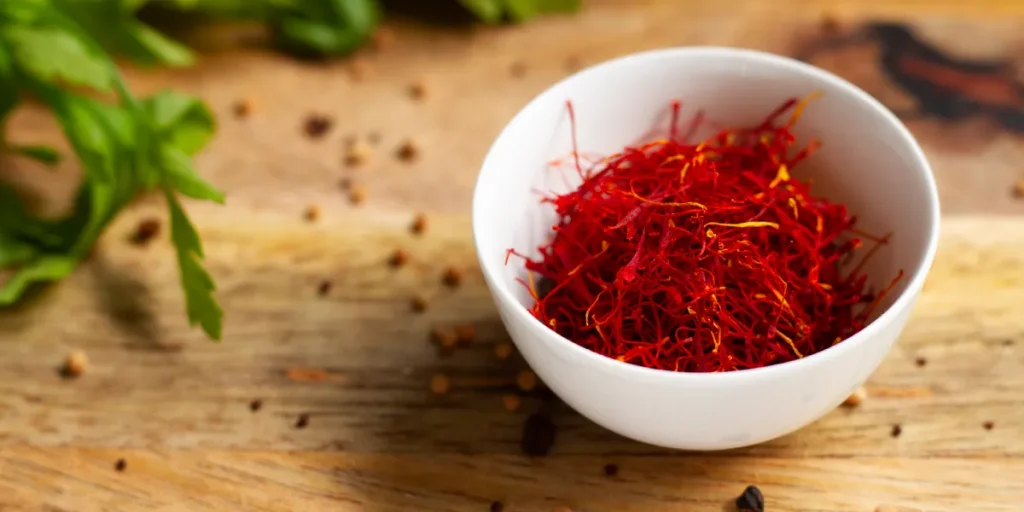
Recommended Dosage, Side Effects, and Precautions
While saffron is generally safe for most people when used appropriately, it’s crucial to be aware of the correct dosages and potential risks, especially when using it as a supplement.
Recommended Dosage: For culinary purposes, saffron is very safe. When used as a health supplement, the effective dose can vary. According to Healthline, an analysis of multiple studies indicates that taking 30 mg of saffron daily can be effective for treating symptoms of mild-to-moderate depression. Generally, health experts consider doses of up to 1.5 grams per day to be safe for most people.
Potential Side Effects and Toxicity. Adverse effects are rare at recommended dosages. However, the risk increases with higher amounts. As reported by WebMD, taking large amounts of saffron is “possibly unsafe.” The health authority notes that doses of more than 5 grams can cause toxic effects such as nausea, vomiting, and dizziness. Doses significantly higher than this (10-20 grams) can be fatal.
Precautions and Who Should Avoid Saffron: Certain individuals should exercise particular caution:
- Pregnancy and Breastfeeding: It is widely advised that pregnant women should avoid high doses of saffron as it may stimulate the uterus. Always consult a healthcare provider before using any supplement during pregnancy.
- Bipolar Disorder: Saffron can potentially trigger mood swings (mania) in people with bipolar disorder.
- Medication Interactions: If you are on medication for blood pressure, blood thinning, or antidepressants, consult your doctor before taking saffron supplements to prevent any potential interactions.
How to Distinguish High-Quality Saffron
Though fake saffron is harmful, there are many ways through which we can distinguish pure saffron and detect adulterants in saffron products. Here are a few ways to determine the purity of saffron:
When dispersed in water, saffron immediately changes to a characteristic form. Through this form, you can simply distinguish saffron from Crocus stamens, safflower, or arnica. Besides, saffron easily dissolves in the aqueous phase and the special odor of saffron can be sensed.
Moreover, you can draw a rod dipped in sulfuric acid across the surface of the dried water extract of saffron. If the saffron is pure, a blue color appears. The color eventually turns purple or reddish-brown. There are also other methods, including color reactions, microscopic study, thin-layer chromatography (TLC), and high-performance liquid chromatography (HPLC). Among which, HPLC is the most effective one. The authors also introduce the CIE syste,m which is a useful technique to assess the quality of saffron.
Conclusion
In this article, we talked about the health benefits of saffron. Saffron is a potent spice that is packed with antioxidants. It’s been linked to a variety of health advantages, including increased attitude, libido, and sex drive, as well as decreased premenstrual syndrome symptoms and increased weight reduction.
Best of all, it is usually safe for the majority of individuals and simple to include in your diet. To get the advantages of saffron’s possible health benefits, include it in your favorite recipes or buy a supplement online.
Finally, the authors continue to mention the best time to cultivate saffron stigma, maintenance requirements, drying methods, and so on. Read more at An overview on saffron, phytochemicals, and medicinal properties


